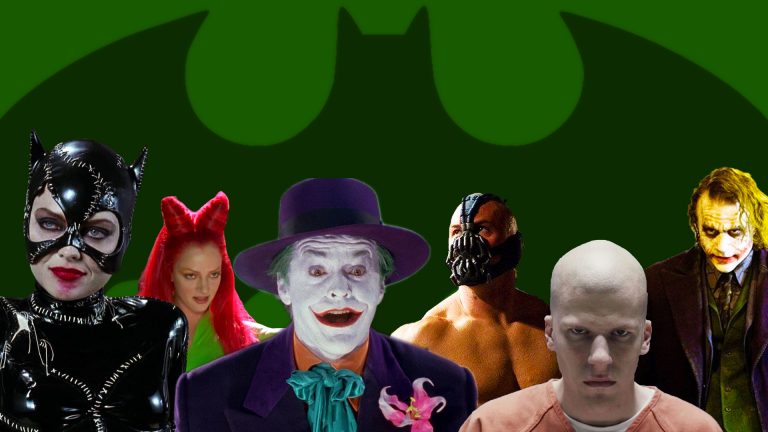Watching Jane Campion’s newest feature on Netflix was a mystical experience. After so long has come a gift will give you something different each time you revisit it. ‘The Power of Dog’ is adapted from Thomas Savage’s seldom discussed novel of the same name. Such is the power of her translation from script to screen, even I am tempted to buy my copy. The film is arguably the most compelling piece of cinema I have seen all year. It is set in 1925 in Montana’s domineering landscapes and revolves around two brothers, Phil (Benedict Cumberbatch) and George (Jesse Plemmons). During a cattle passing and their stay at a local inn, the former falls in love with the keeper, Rose (Kirsten Dunst). They marry, marking the beginning of consuming psychological warfare between Rose and Phil that threatens to become a zero-sum game.
The phrase “layered narrative” is often thrown around without merit or a complete understanding of what constitutes one. Campion showcases a masterclass in building one. Every character in the story has a breathing life with raw, uninhibited emotions. They are expressive and intuitive and strengthen the core story with unique additive qualities that allow a meaningful engagement with the viewer. Films that do not tell you how you are supposed to feel are rare. Even rarer is the ability of a filmmaker to keep a consistent tone that is neither too abrasive theatrically, nor too languid in representing reality. But she creates the perfect balance.
Campion and her brilliant partner in crime, Ari Wegner (DoP for films like ‘Lady Macbeth’, ‘Zola‘, ‘In Fabric’) are chiefs in transforming the haunting landscape into an immense pillar of the storytelling. The mountains and the terrain subtly interact with Phil and give us insights into his personality. One instance is how relaxed Phil is when he is with nature; in the shadow of the hills, amidst the moving, unkempt grass; possibly because he has tamed the landscape, and he is uneasy with people, in the house, because he doesn’t understand them, or doesn’t know how to communicate with them and puts on a masculine front to cope. His sexual repression, presumably of his macho hero Bronco Henry, unsettles him in the house. While one feels isolated in the vastness outside, he feels at home, liberated, moved by the forces of nature.
The introduction of Peter tilts the balance of power favorably towards Rose and is a key trigger that unleashes the true potential of Savage’s literary genius. A character like him can be a potent weapon that can as easily implode as it can breathe new life in a story. Campion’s careful handling and trained eye ensure the former does not happen. She deploys him as the talisman that pushes ‘The Power of the Dog’ beyond the precipice of normal and into cinematic greatness. The narrative is bookended by a rhythmic panorama-style pan between Phil and Peter that would have been the highlight of most ordinary films, but in ‘The Power of the Dog’, it is one in many bright moments. Jonny Greenwood’s score sees the return of the de-tuned quartets that he used in composition for ‘There Will Be Blood’. In my honest opinion, I probably would not have enjoyed this film but for my unending love for Paul Thomas Anderson’s magnum opus. But it is your choice to see either one first.
Okay. So below is a list of some great films you will love to watch if you liked ‘The Power of the Dog’. Hope you like the list and that we add value to your experience of living in the magical world of this great medium. Happy reading!
10. The Goalie’s Anxiety At The Penalty Kick (1972)
The creeping inevitability of the penalty is relative to everything that Joseph does. He’s usually quiet with an unwelcoming disposition. His self-centered nature is no impediment in picking up women; lots, and lots of them. And he will occasionally murder one or two. Wim Wenders’ debut feature is by no means random, or arbitrary. Despite the impression that nothing is happening, Wenders builds a formidable visual language of claustrophobia that is fleeting. Peter Handke, who wrote the book the film is based on, is similarly restrained in the description of the events in Joseph’s day. The metaphor of a penalty symbolizes the position Joseph finds himself in; he could go either way or stand his ground and do nothing. His fate is not in his hands, just like a goalkeeper. The person who takes the penalty – the police for Joseph – will decide his destiny.
The contemplative tone that is overwhelming in ‘The Goalie’ is understated in ‘The Power’. Wenders lets his protagonist struggle with his anxiety and insecurity all by himself. There is no one else he can rely upon except the streets of the city and all the musings it offers. That is exactly how Phil feels after and before Goerge marries Rose and Peter takes an interest in him, respectively. For him, the Montana landscape becomes his escape, his only friend who knows all his secrets. He confides in it, as Joseph does with the city. The disintegration of Joseph’s state of mind might seem to be unremarkable but it sure is beautiful and existential.
9. And Then We Danced (2019)
This Georgian drama impressively binds together a spectrum of themes, some of which are not as expounded in ‘The Power of the Dog’. ‘And then we Danced’ is a poignant tale of acceptance, love, and heartbreak. Told through the character of Merab, it ventures into yet uncharted territory for Georgian cinema. Notions of masculinity and societal belittlement are similar to that of ‘The Power of the Dog’, although are expressed in a cultural context, as opposed to a personal expression. Campion mentioned in the press that Thomas Savage based Peter on his own personality and life story. The autobiographical elements make the details and manner of how they are perceived bent to Savage’s observations growing up.
Related to The Power of the Dog: The 50 Best Films of 2019
‘And Then We Danced’ is not as smooth an experience. It belongs to the new-age stream of films that are not hesitant to make the viewer uncomfortable. They associate heavily with modern sensibilities and derive significance from the representation of different stereotypes. If you liked the direction in which ‘The Power of the Dog’ takes these themes, do not miss out on this.
8. Warrior (2011)
‘Warrior’ features on this list primarily because of its likeness to the brother dynamic between Phil and George in ‘The Power of the Dog’. Tom Hardy and Joel Edgerton star as the troubled duo in the film. ‘Warrior’s emotional core heavily involves the father of the two brothers, brilliantly played by Nick Nolte, and is, therefore, greater in its scope of the examination. Despite this aspect not being present in ‘The Power’, George and Phil are comparable to Brendan and Tommy, respectively.
The first pair are emotionally mature, have their own families, and have a more noble worldview, while the latter are vulnerable, insociable, and emotionally unstable. The contrast in their personalities is measured and births a tension to the interactions that is palpable and tangible, so much so, you could probably cut it with a knife. In both films, the relationship between the brothers is dynamic; it ebbs and flows with the tonal changes in the plots. The involvement of Nolte as the father does not intrude upon their interaction too much, although it definitely makes a difference. ‘Warrior’ isn’t the only comparable brother-centric film that is like ‘The Power of the Dog’, but it most certainly is equally, if not more, energetic and raw.
7. Slow West (2015)
‘Slow West’ is a searing tale that binds together savagery and fledgling love. These prominent themes are explored through the characters of Silas (Michael Fassbender), a bounty hunter, and Jay (Kodi-Smith, who plays Peter in ‘The Power’). The latter travels from Scotland into the American West to look for Rose, the girl he loves, who had to run off with her father after he accidentally kills Jay’s rich uncle, Lord Cavendish. With a bounty on their head, Jay becomes key in tracking them down. At 84 minutes, this is one of the shortest A24 movies in recent times.
Related to The Power of the Dog: The 15 best Westerns of the 21st Century
Debutant John Maclean does a tremendous job of utilizing the time optimally to give as much background to Jay’s adventures and motivations. There is the simple beauty of the Scotland highs that Campion captures in ‘The Power of the Dog’. Both being Westerns show a tendency to reshape the use of violence and instead use the idea of it to titillate and enthrall.
6. Stoker (2013)
Mia Wasikowska’s character in ‘Stoker’ has a similar character arc to Peter’s in ‘The Power of the Dog’. On closer inspection, both films are somewhat of a coming-of-age story for these characters. Mia’s journey begins when she starts gravitating towards her charming, questionable uncle, Charlie. The symbolic gift of the heels to Mia in place of her sneakers is the definitive statement to this effect but the process is visibly clear from how things unfurl. Peter, on the other hand, is taken towards that path by Phil, who is distinct from Charlie in personality but is a similar father-like figure for Peter. This is also where the norms of masculinity are brought out: is George not man enough to be a father to Peter? Just because Phil is more “hands-on” (pun intended), authoritative, and better at castrating bulls with his bare hands, he would be the ideal father? Well, not according to Peter.
Not to forget how Mia and Peter finish the film with violence; the former, more pronounced and emblematic of cinematic traditions; the latter, disembodied and subtle. Both will make for an interesting character study in their respective universes. The unnerving atmospheric appeal that the two films carry is surreal, never really allowing the viewer to watch them with a normal heartbeat. They both create a heightened sense of awareness on the viewer’s part. With dream-like elements and dysfunctional families, ‘Stoker’ and ‘The Power of the Dog’ are an impressive pair of films, even more so when viewed together.
5. Phantom Thread (2017)
Perversity is what links ‘Phantom Thread’ to ‘The Power of the Dog’. And also, the lack of use of the term, “toxic masculinity” to define their protagonists, by Campion and PTA. ‘Phantom Thread’ is essentially a love story but sans the traditional form of romance. The contours of what love means and its expression to the other person take an ungainly turn for Reynolds Woodcock and Alma. Remember when Phyllis Vance (“Vance Refrigeration”) from ‘The Office’ said, “Dwight had a big personality and I have a big personality. And a lot of times when two people like that get together, it can be explosive”? That is exactly what happens here. When Reynolds and his sister feel challenged by Alma, she poisons him to make him more “malleable”. She takes care of him, something that Reynolds likes as well when he learns the truth, only to repeat the exercise once they have a “fight”.
Related to The Power of the Dog: 10 Films to Watch if You love Phantom Thread (2017)
Rose and Peter share a similar kind of perverse love, although platonic. ‘The Power of the Dog’ isn’t too straightforward when it comes to quantifying the arithmetic of relationships. That is why the dynamic always carries the potential to spring a surprise. This unpredictability is common to both ‘Phantom Thread’ and ‘The Power of the Dog’. The changed setting does not make too much of a difference if you really try to view the respective plots and their complexities in isolation.
4. Psycho (1960)
The Hitchcock classic has defiantly stood the test of time. Even after six decades of fantastic films, ‘Psycho’ holds a dear place in cinema’s most illustrious bracket. Easily dismissed as a slasher juggernaut, ‘Psycho’s rich exposition also lies in its portrayal of a complicated mother-son relationship. Like Rose and Peter in ‘The Power of the Dog’, Norman and Norma are inseparable. The nature of their bond is tricky to dissect and the first few times you see them on screen, it shows. Their interaction is mostly in things unsaid. In fact, the film hardly shows any direct communication between them about Phil. Instinctively, Peter feels it is incumbent upon him to pull her mother’s life from falling apart. Her free fall into the dark abyss of alcoholism has to be arrested. He soon realizes that George will not be able to help due to his conditioning with Phil.
Although it was jealousy that drove Norman to murder his mother, he was as possessive and obsessed with her as Peter is with Rose. This behavior can also be explained by the fact that his father died in his childhood and she was all he had. The overprotective sons were subconsciously displaced into action by the influence their mothers had on them. Watching ‘Psycho’ requires no additional reasons. But if you want to review it from this perspective, there might just be something worth exploring.
3. Brokeback Mountain (2005)
Ang Lee’s meditative take on unresolved love and melancholy is one of the most beautiful cinematic experiences of this century. This film broke stereotypes when it was first released for actors reluctant to play homosexual characters on screen. Gyllenhaal, who plays Jack Twist in the film, remarked in an interview about his character. “Back then, no one wanted to play a gay character on screen. Now, everyone wants to do it”. The plot revolves around a pair of cowboys hired to herd sheep through the summer and how they fall in love but cannot proceed with a relationship owing to narrow-minded social mores around sexuality and gender identity. In comparison, Twist is like Peter, who embraces and even flaunts his feminine side. On a number of occasions, he tries contacting Ennis but his attempts are rebuffed.
Related to The Power of the Dog: Every Heath Ledger Performance Ranked
Both these characters are open-minded and at peace with who they are. They are filled with passion for things they love doing and are fearless in the face of daunting challenges. Ennis, on the other hand, is the exact opposite. Despite reciprocating feelings towards Twist, he is unable to break free of his hardened belief system. Heath Ledger’s masterful performance as the tacit Ennis, four-cornered by his traditional and fear-mongering upbringing, reflects in Cumberbatch’s Phil. They hesitate and resort to violence when they are confronted with their realities. Acting out and isolating themselves, their facade of suppressed identities is complete with a tough exterior.
Another noticeable similarity between Ang Lee and Campion is how they scale their cameras. They use the peaks as a metaphor for insurmountable obstacles that their protagonists cannot conquer. In spite of their fighting spirits, their will to let go somehow goes missing every time they decide to take the plunge. The tragedy and heartbreak in both films are marked by the same human yearning to feel, be, and never look back.
2. Mother (2009)
Bong Joon-ho’s manic ‘Mother’ tested the limits to which a mother would go to protect her son. In his typical style, Bong fashions an aging single woman in a small town, doing everything possible and more to look after her mentally challenged son. His observant cinematic world is made up of a colorful palette of emotions like anger, laughter, and betrayal. In ‘The Power of the Dog’, the roles stood reversed. Rose, disabled by her alcoholism, depended on Peter to make things right for her. She could not bear facing off against a resentful Phil. George’s reluctance to “man up” to Phil wasn’t a big help either. When push comes to shove, Mother is forced into action when she discovers that her son accidentally commits the murder of a young girl.
Related to The Power of the Dog: Every Bong Joon-ho Film Ranked
From stabbing a ragpicker and burning down his house, to blackmailing men his son’s age with their nude pictures, Mother does not stop. Not, at least, until her son stands exonerated. The vice that she commits while doing so prompts her to use her special skillset on herself, something she never thought she would.
1. There Will Be Blood (2007)
After his humiliation at the hands of Phil, Peter declines to help his mother look after the people at the inn. George finds Rose alone in the kitchen, overwhelmed and downtrodden at the prospect. He respectfully picks her up, helps with the chores, and returns to his house a happy man. While sitting downstairs, he reminisces about the moments he spent with his future wife. An unsuspecting Phil strolls down, lights a cigarette, and stares at him. It seems a rather small and insignificant moment, just like the stare that Daniel Day Lewis’ Daniel Plainview has when he shares a moment with his brother, right before he says the line, “I have a competition in me. I want no one else to succeed”. But these two moments provide immense insights into these two classic characters.
Okay, so firstly, both the films have basically the same background score; menacing, haunting, mysterious, grand. the De-tuned quartets form the base of his epic edifice of a soundscape. Greenwood is a true master of his craft. His understanding of texture in sound and music reflects in his uncharacteristic composition style. The boldness and courage he shows with his music have given us monumental soundtracks that are hard to emulate. Secondly, the characters. Daniel and Phil are wrought from the same fabric, the strands of which are resentful, jealous, untrusting of other humans. They do not like partaking in the joy of togetherness and socializing, instead choosing to remain hidden behind the harshness and indifference of their work. The critical nature of what they do ensures that these men are men of conviction, and decisiveness, and action. They are thoroughly professional and good at what they do. They don’t require an extra hand.
Related to The Power of the Dog: There Will Be Blood (2007): A Compulsive Capitalist against the Volatile Force of Nature
Moreover, they are the alphas. Daniel remarks in his initial oilman speech, “These men that work, work for me and they are men I know”. The cowhands revere Phil and follow him everywhere. For the two groups of men, the words of their leaders are like commandments for them. Each action has to be executed like it has been commanded by them. They set the tones for the scenes they feature in, seldom getting outshone. But when they do, it is by someone who is profoundly against their belief system. Daniel hates religion and by extension, Eli. Phil is homophobic and by extension, loathes Peter. Surprisingly, though, the alphas are hypocritical enough to get drawn in by the energies of their hate and use it for gratification. Daniel uses the same stage that he so vilely looks down upon to redeem himself in the eyes of the locals in the Baptism scene; Phil befriends Peter despite making fun of his feminine behavior throughout to fondly remember his memories with Bronco Henry.
These complicated characters lacked a strong father figure growing up, and while Phil is pounced upon by the toxic, yet masculine Bronco Henry, Daniel doesn’t really have anyone. He sculpts his way through the unknown; a self-made man. His path of success, albeit one of loneliness and deprivation of love, is a respectable one. But he takes no joy in his success. It was, like he said, “something for him to do” and now that he doesn’t have anything to do with himself (remember the scene with the Standard rep?), he whiles away his wealth drinking and merrymaking.
‘The Power of the Dog’ and ‘There Will be Blood’ are fantastic films and feature two outstanding performances. I would recommend seeing the latter first and then the former to get the best outcome.

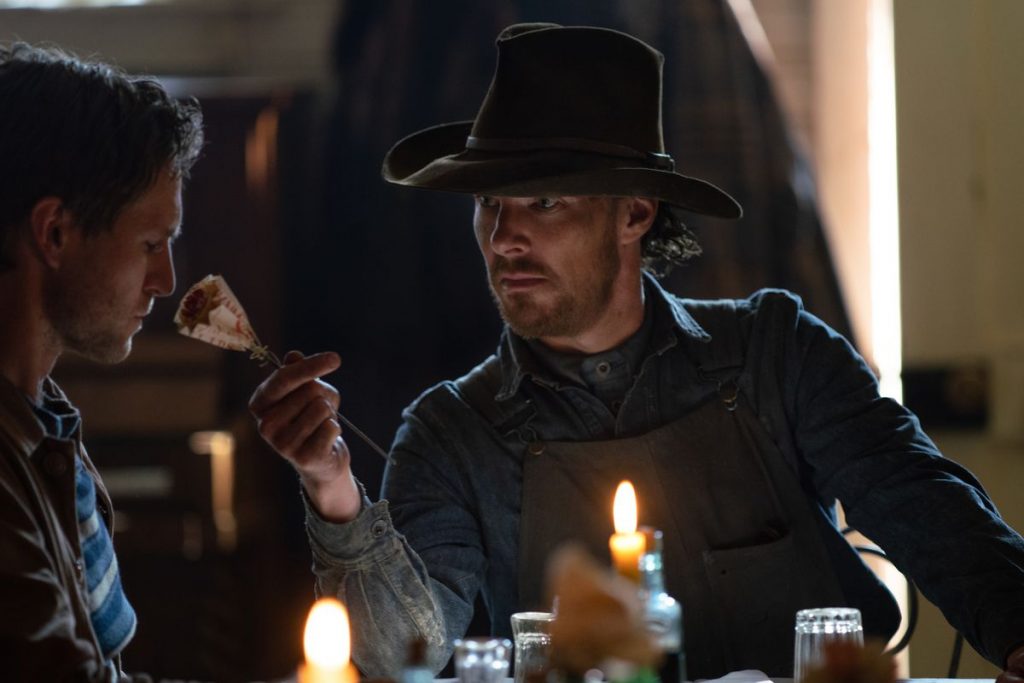
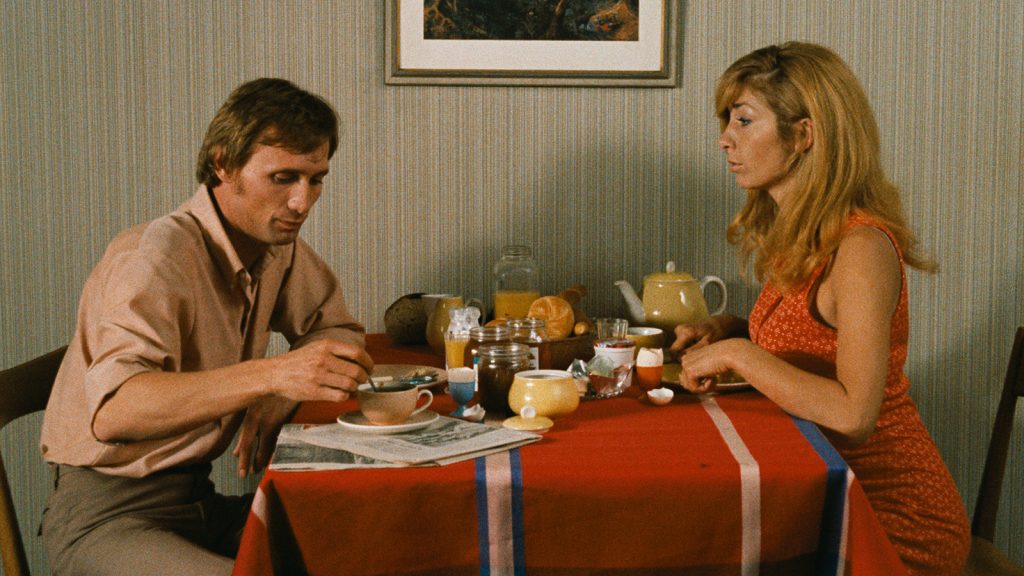
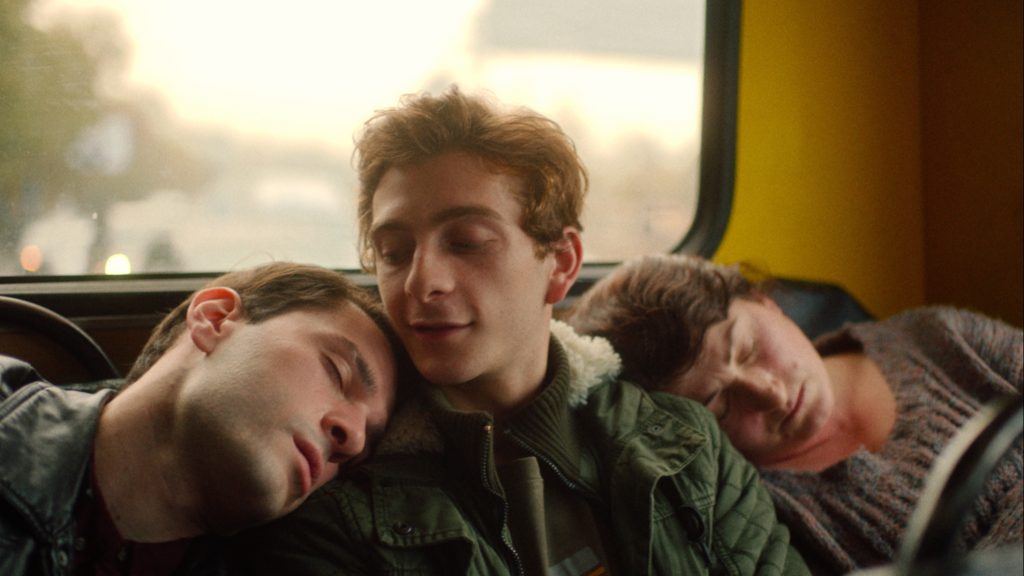
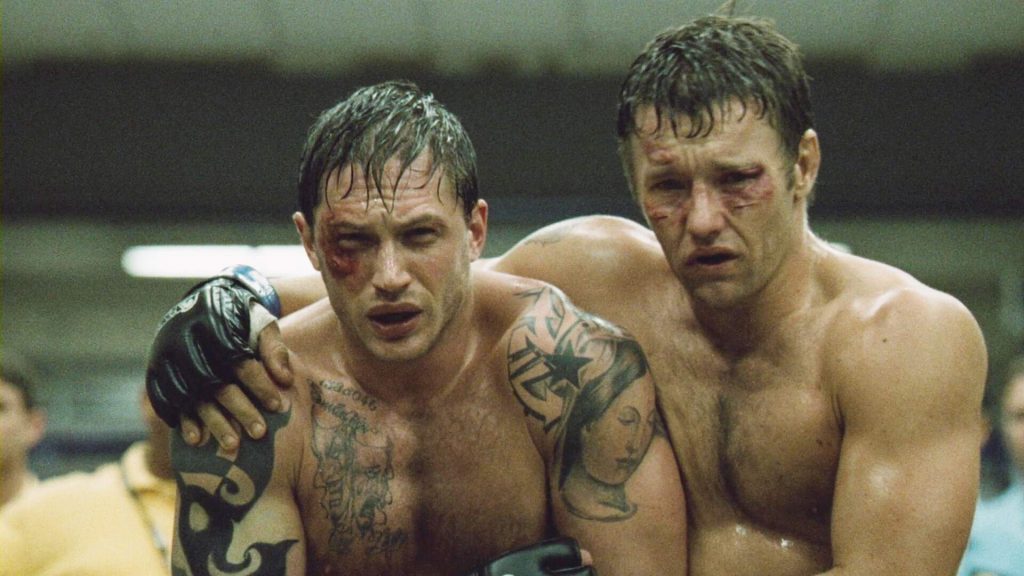
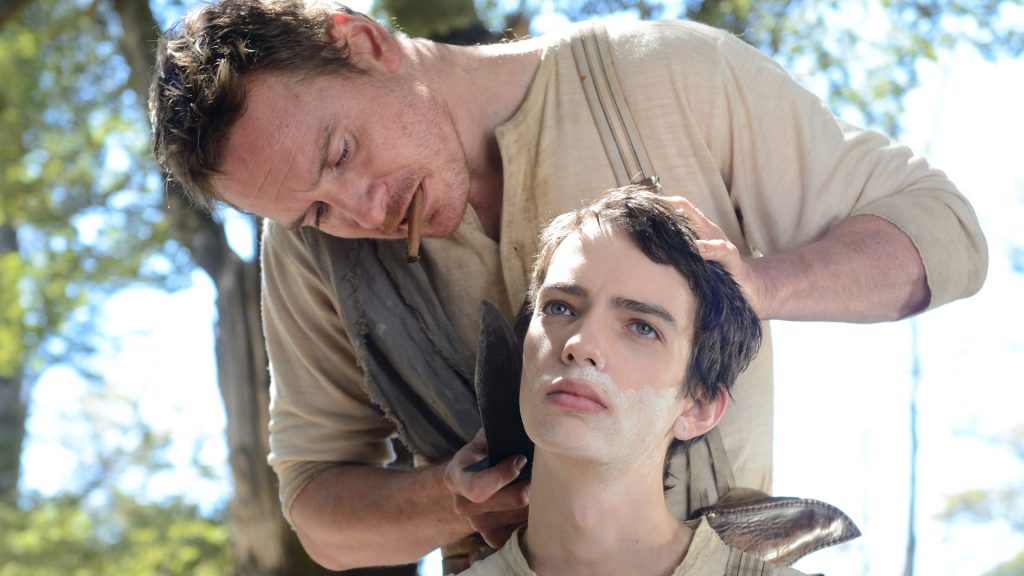
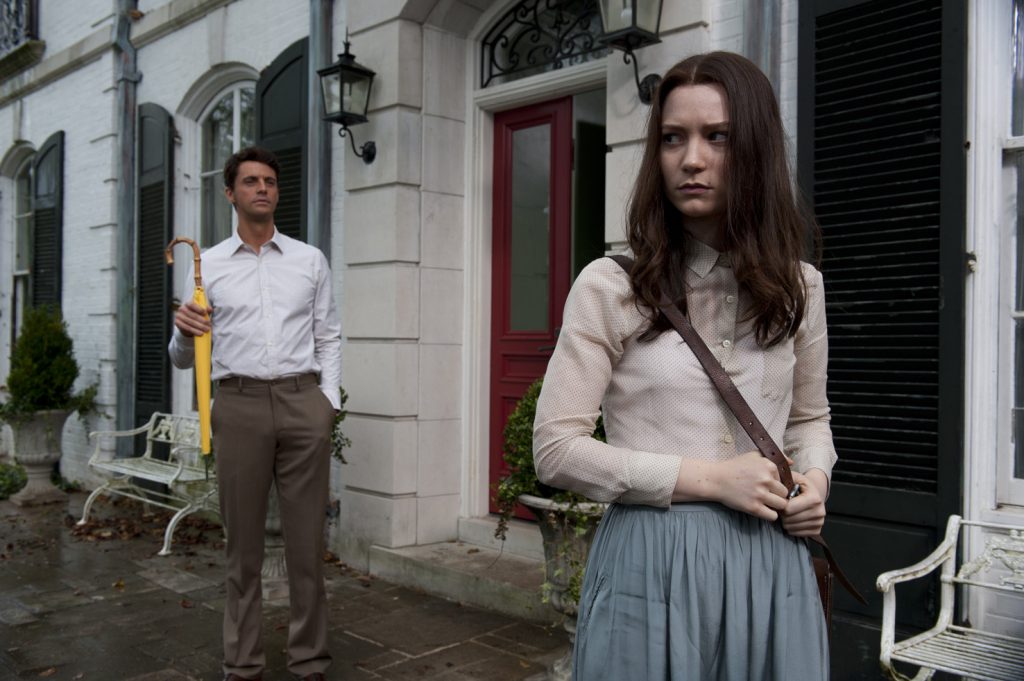
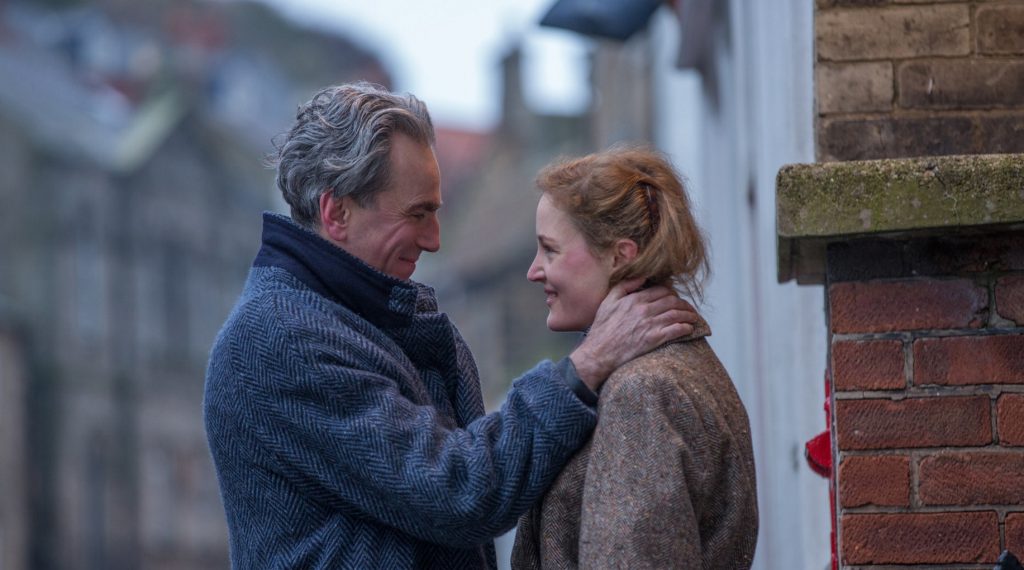
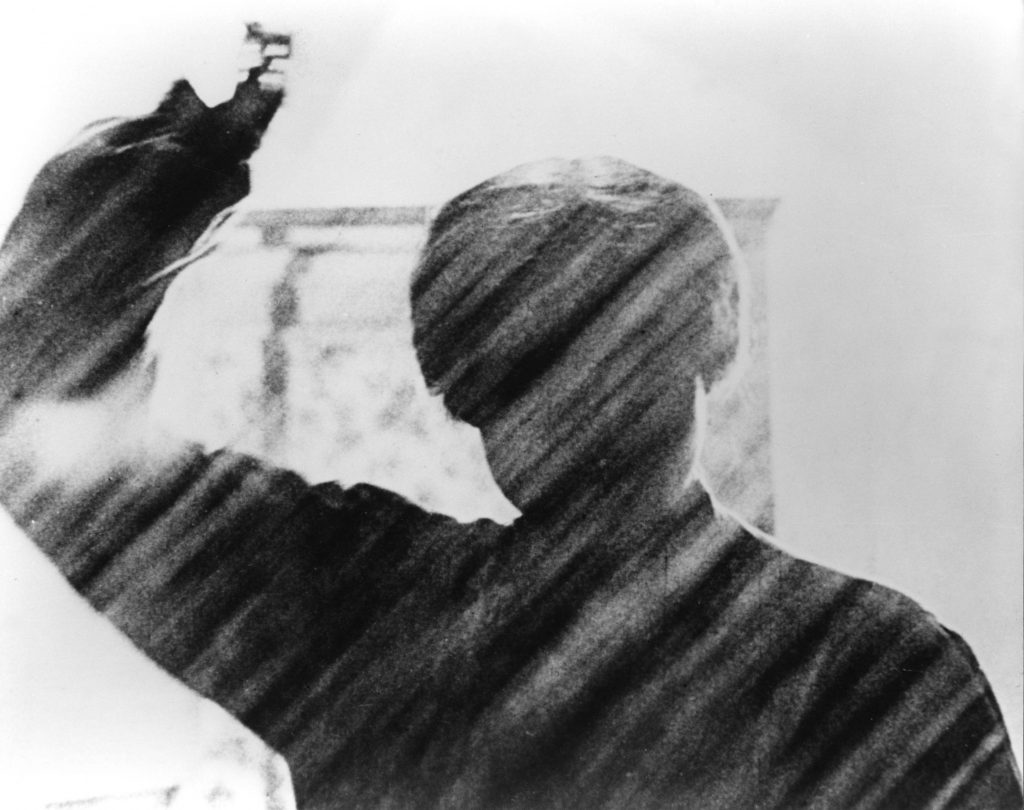
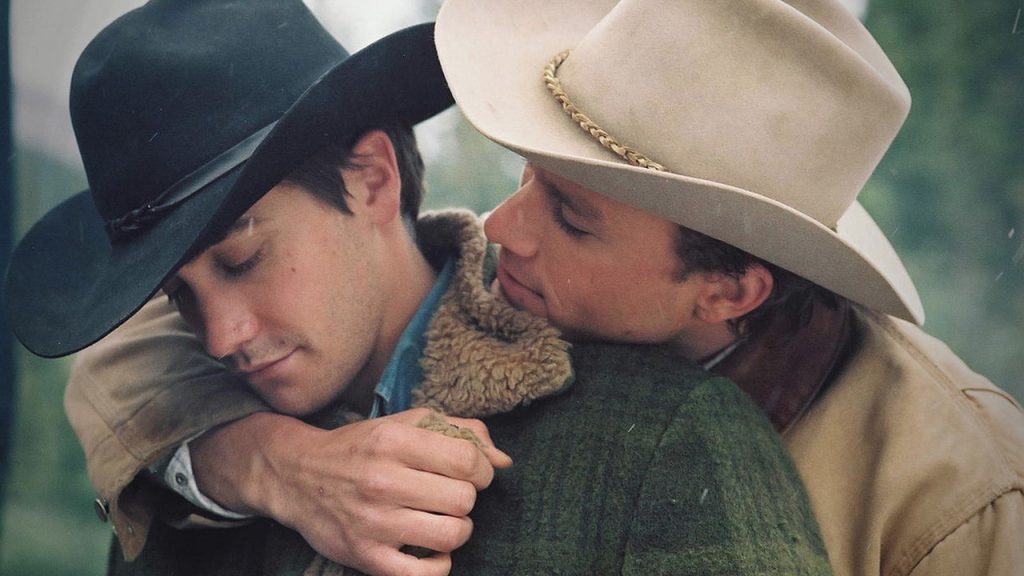
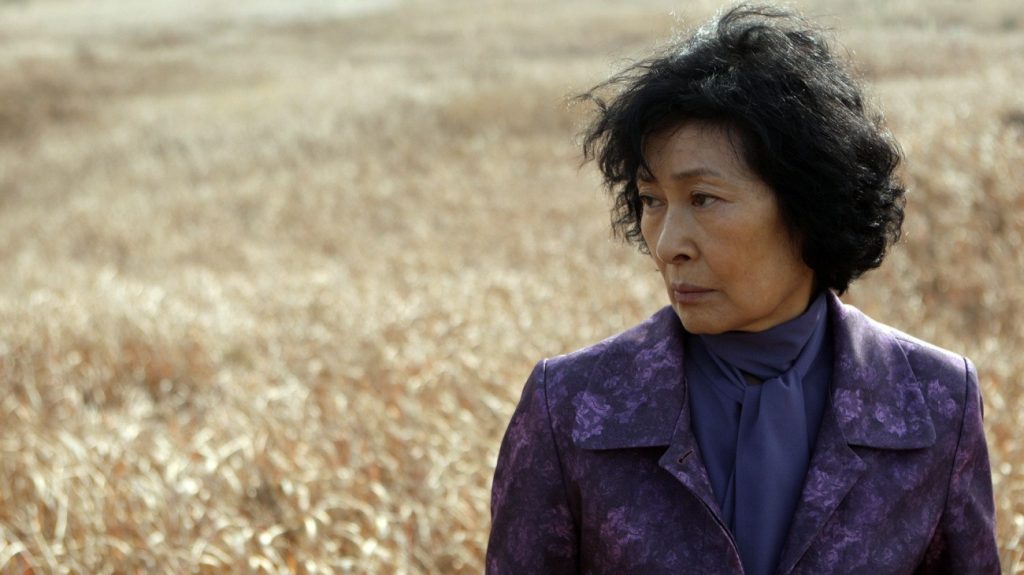
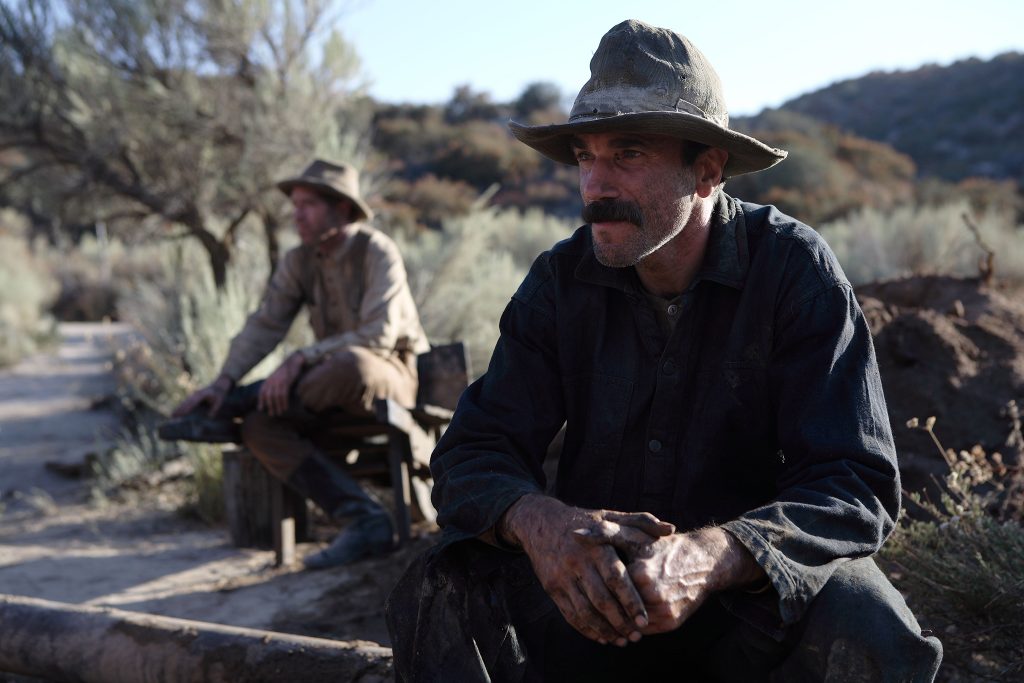

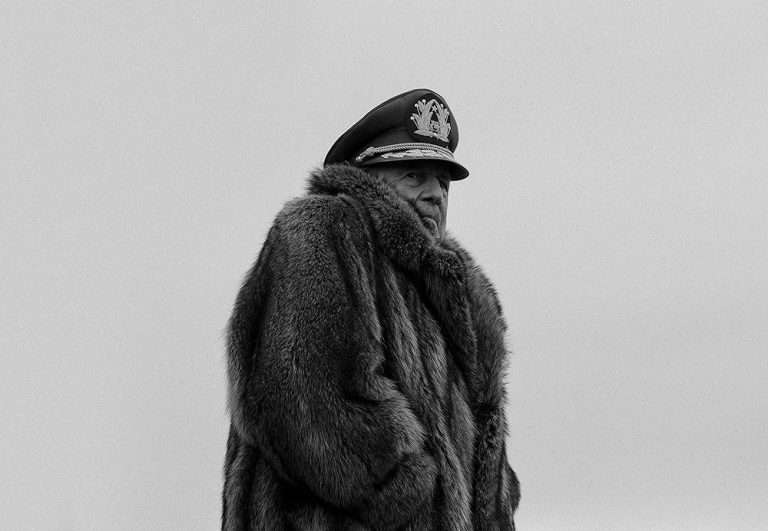

![Munich – The Edge of War [2022] ‘Netflix’ Review: Yet another plea to Oppose Fascism before its too Late](https://79468c92.delivery.rocketcdn.me/wp-content/uploads/2022/01/Munich-The-Edge-of-War-2022-768x432.jpeg)
